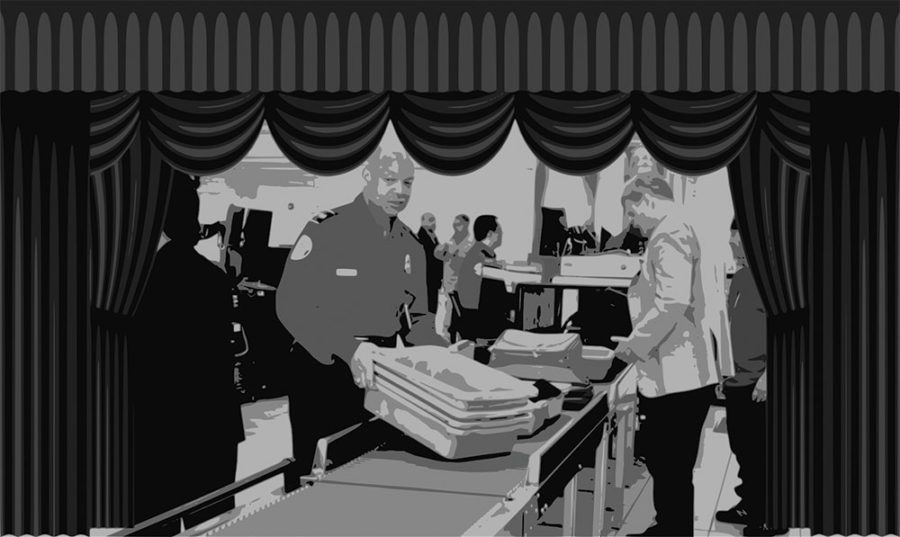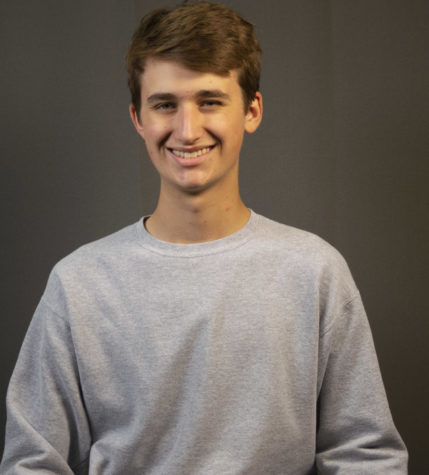Peace of mind
“Security theater” is more than a show
Photo by Department of Homeland Security
September 5, 2018
Imagine creating an account for a website; let’s say it’s something for school. You need a username and a password, and for some reason, the website requires your password to have numbers, capital and lowercase letters, random symbols and all sorts of other strange combinations of things you will never remember.You think to yourself, “Why am I doing this? Who is going to bother hacking into my CollegeBoard profile? Why is this website making me create an impossible-to-remember passcode that even I, let alone somebody with malicious intent, will be able to get right?”
If you’ve been to an airport before, you know how painful and draconian the Transportation Security Administration (TSA) safety measures are. Patting you down, searching you because your belt buckle set off a metal detector, screening and putting people on no-fly lists.
Lots of these measures seem useless, counter-intuitive, or meaningless. Many people have argued that these security measures are entirely “theater” – in 2003, in his book Beyond Fear, security expert Bruce Schneier described post-9/11 TSA security measures as exactly that: “security theater.” To put it simply, security theater is the act of setting up new security measures and routines that intend to give the public the perception of safety rather than real safety.
Security theater, despite seeming unnecessary, actually solves some of the problems that are caused by tragic disasters that occur due to holes in security measures. After the September 11 attacks, in which al-Qaeda hijacked 4 passenger jets and crashed them into the World Trade Center buildings and the Pentagon, the public was frustrated with how these terrorists, armed with knives, managed to infiltrate airport security.
People were terrified that the United States was under attack. Who would want to board a plane after watching two planes crash into the tallest towers in New York? This is where the TSA was born.
Was the purpose of the TSA really to provide rigid and impenetrable security, capable of stopping any and all threats at the snap of a finger, without any fail? No, and George W. Bush probably didn’t even think that. Really, the strategy taken by al-Qaeda on 9/11 happens so rarely that the most effective security measures to be put in place were the ones that would console scared people and bring them back into the plane-passenger fold.
As President Franklin D. Roosevelt famously said during his first inauguration speech, “the only thing we have to fear is fear itself.” As inconvenient and ridiculous some of these security theater measures may seem to some, to others, they can curb their fears that they associate with terrible tragedies of the past.
This isn’t to say that real security measures shouldn’t be implemented. In fact, I’d say that authorities should prioritize creating new techniques and protocols that would close the loopholes that left whatever abused system so vulnerable, rather on creating “placebo” security measures.
Nonetheless, the intended consequences of security theater still have value. The reality is that the world is much safer than it used to be, and to implement security measures that would completely eradicate the threat of crime and violence forever would also be repressive and destructive of our individual rights and liberties.
Last May, a tragic shooting took place at Noblesville West Middle School where a student managed to leave class (under the pretense of asking to use the restroom), get weapons from his locker, and come back to shoot his classmate and his teacher. What loophole in security was present in this situation? Should students not be allowed to use the restroom during class? Should all lockers have some electronic safety mechanism that keeps them locked during certain hours? Should students be required to have x-ray and electronic searches every day while getting off the bus in the morning?
The truth is, every possible attack is impossible to predict. No matter how many security measures are implemented, the worst people will still find a way to break through them. This causes perpetual fear among the population, and the authorities are forced to use security theater to curb these fears.
As mentioned earlier, the world is much safer than it used to be, and despite the hysteria caused by such tragedies, society usually carries on. Most people are non-violent, don’t have bad intentions or desires to hurt people. They just want to live and let live.
What will really make us safer is preventative measures, solving the problem at the source. Our government should to take a look at the bigger picture or source of these sorts of tragedies, whether it be mental health issues, foreign policy mishaps, bad regulations, etc., and perhaps change course from there.
Until this seemingly utopian world arrives, people rely on security theater to feel safer. To be fair, sometimes that feeling is more necessary than crackdowns on people’s rights.



